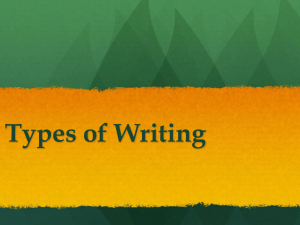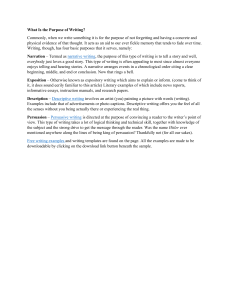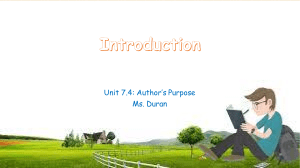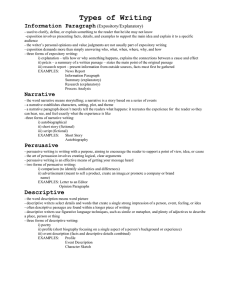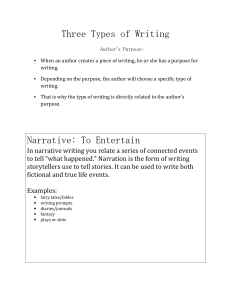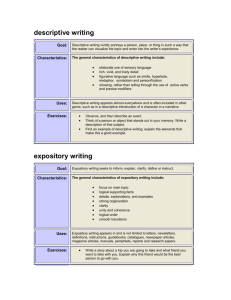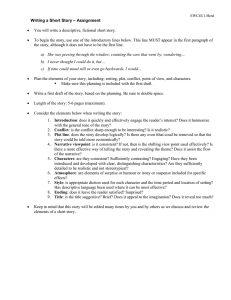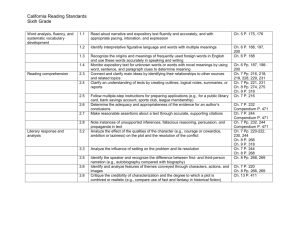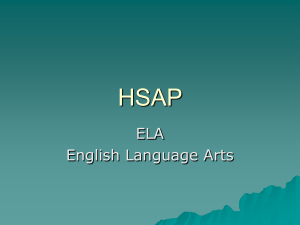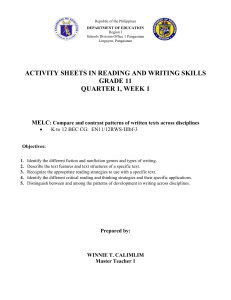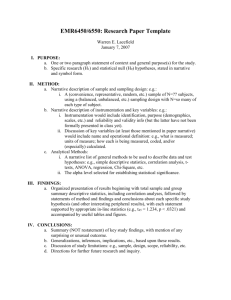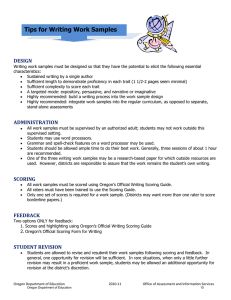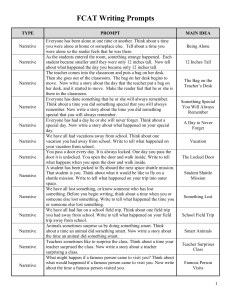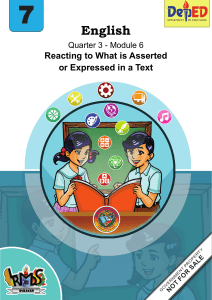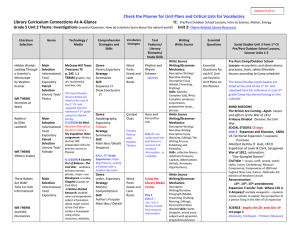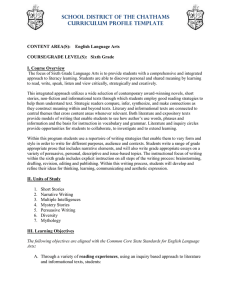Four types of writing guided notes
advertisement
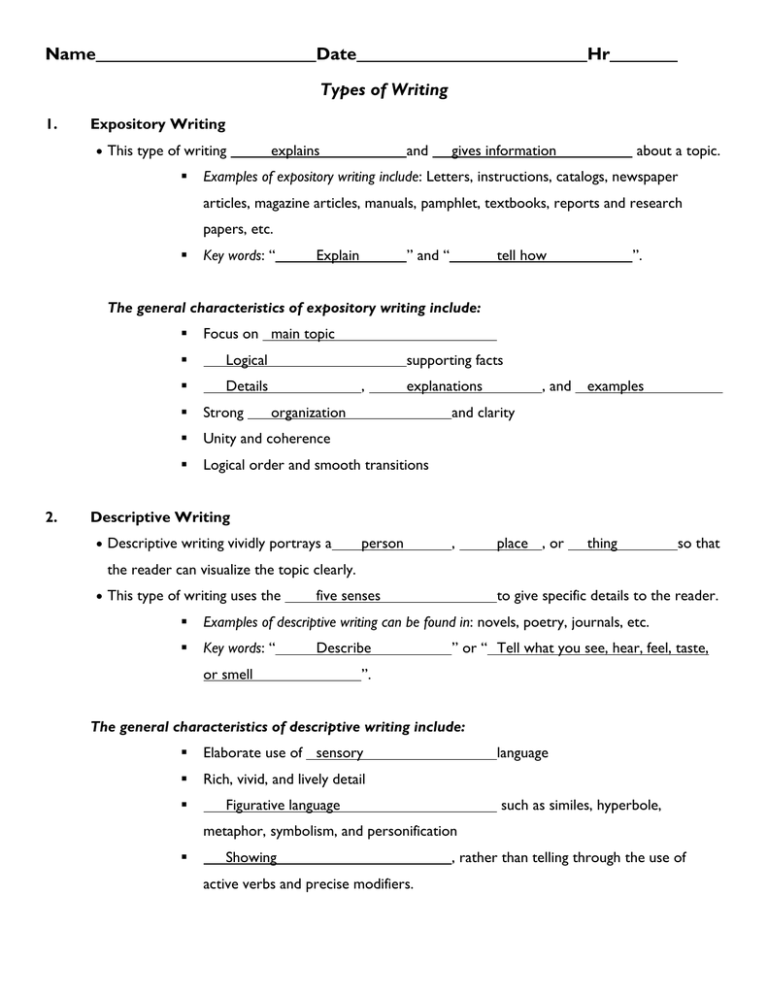
Name Date Hr Types of Writing 1. Expository Writing This type of writing explains and gives information about a topic. Examples of expository writing include: Letters, instructions, catalogs, newspaper articles, magazine articles, manuals, pamphlet, textbooks, reports and research papers, etc. Key words: “ Explain ” and “ tell how ”. The general characteristics of expository writing include: 2. Focus on main topic Logical Details supporting facts , explanations Strong organization Unity and coherence Logical order and smooth transitions , and examples and clarity Descriptive Writing Descriptive writing vividly portrays a person , place , or thing so that the reader can visualize the topic clearly. This type of writing uses the five senses to give specific details to the reader. Examples of descriptive writing can be found in: novels, poetry, journals, etc. Key words: “ Describe or smell ” or “ Tell what you see, hear, feel, taste, ”. The general characteristics of descriptive writing include: Elaborate use of sensory Rich, vivid, and lively detail Figurative language language such as similes, hyperbole, metaphor, symbolism, and personification Showing active verbs and precise modifiers. , rather than telling through the use of 3. Narrative Writing Narrative writing tells a story . The story could be fact or fiction. Examples of narrative writing appears in: novels, short stories, biographies, autobiographies, historical accounts, essays, poems, and plays. Key words: “ Write about when “ and “ Tell a story about “ The general characteristics of narrative writing include: Plot structure -introduction, rising action, climax, falling action, resolution. Narrative writing also includes- conflict setting 4. , , themes characterization , , point of view , etc. Persuasive Writing Persuasive writing is meant to influence or convince the reader to think or act in a certain way. Example of persuasive writings: speeches, letters to the editor, advertisements, pamphlets, petitions, scholarly writing, and opinion pieces. Key words: “ persuade ” or “ convince ”. The general characteristics of persuasive writing include: A clear or direct opinion statement Specific facts Examples and/or your opinion Logical Call to action argument statistics to back up
